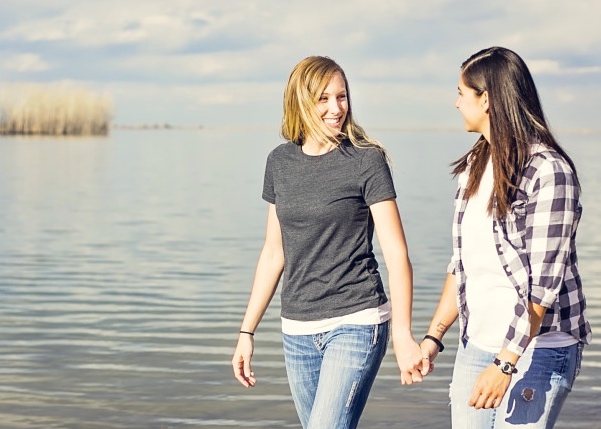
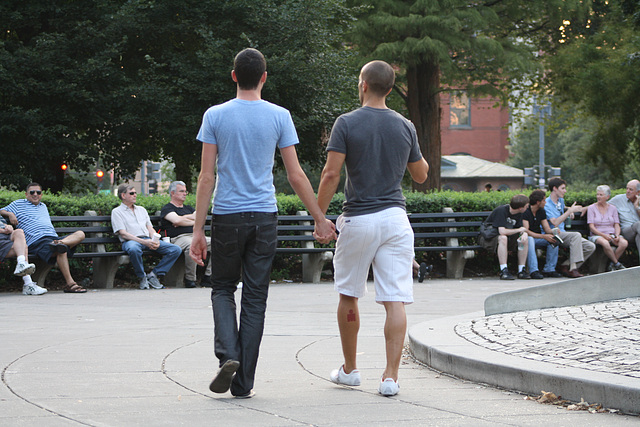
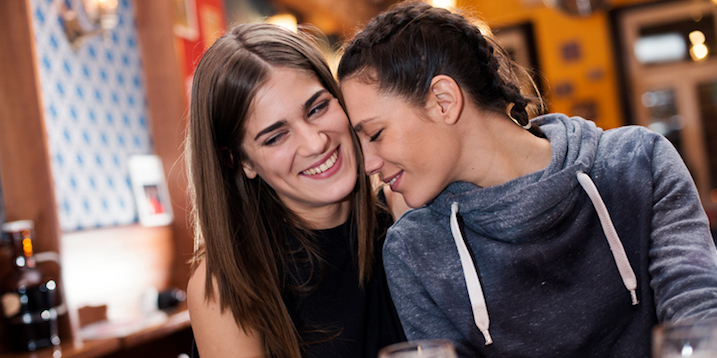
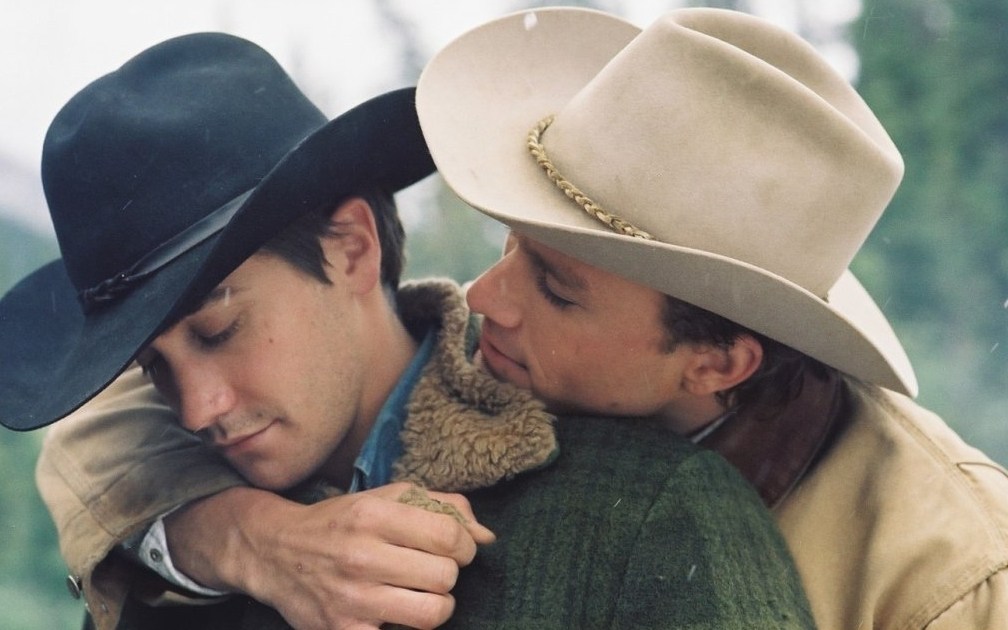
It’s all about this photo:
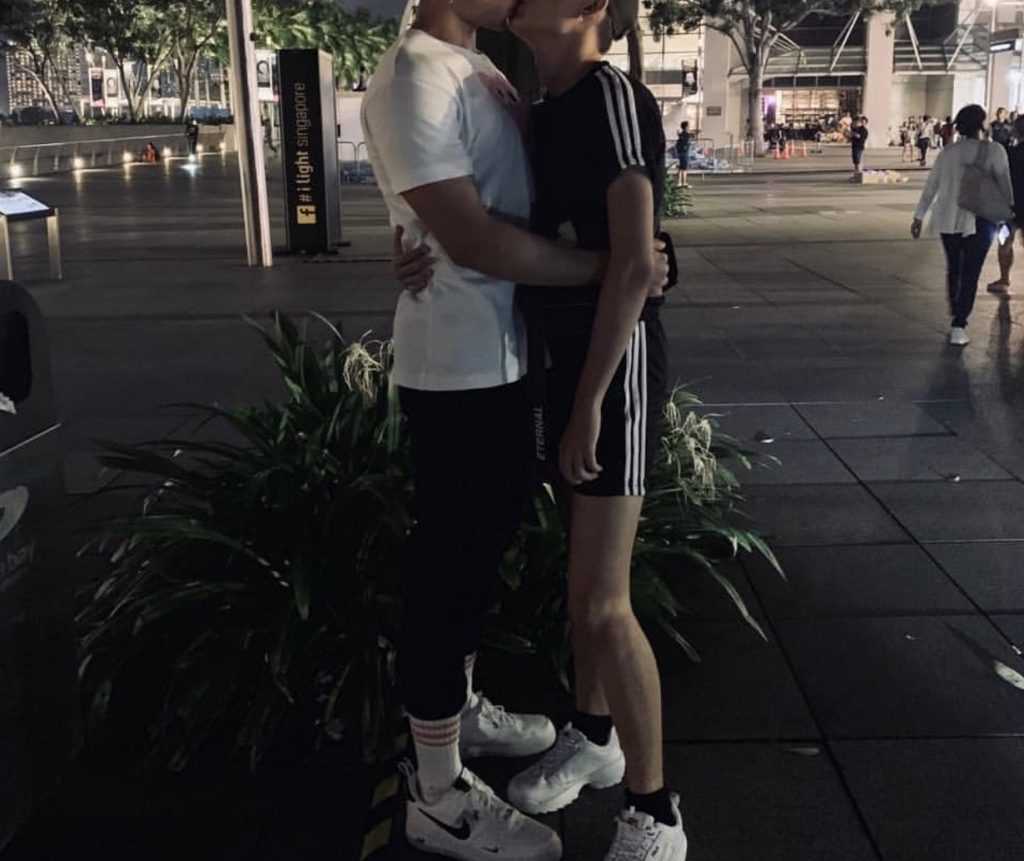
However, would the haters have responded differently, had it been a photo of two women kissing instead?
I note in particular how the above photo surfaced an explicit online discussion on the couple’s masculinity (or lack thereof) and sexual activities, with the same morbid curiosity of a child transfixed by a rotting rat carcass. Of course, these are not the exact words they used, because the actual language was vulgar, sensational, and should not be screenshotted and plastered all over one’s article on the event.
In fact, there seems to be a general acknowledgement, even amongst pro-LGBT individuals, that gendered behavior and sexuality go hand-in-hand. A gay man is generally expected to be more effeminate, and vice versa.
Yet is this necessarily true?
As a heterosexual man myself, I turned to a gay friend for some insights.
“Ironically”, he tells me, “I don’t like really like [feminine] behaviour in myself, and I can’t tell if this is internalised … due to society, or a natural feeling.”
Other gay friends have also expressed similar sentiments in the past. Even for members of the gay community, the exhibition of conventionally feminine behaviour can be a source of self-disdain.
And so it can seem that society is insulted by homosexuality not because of religious or scientific incompatibility, as they so often claim. Instead, they use their religious and scientific proofs to justify the feeling that non-masculine traits in a man are unnatural and condemnable. This distinction rears its head especially when it comes to male homosexual PDA.
I remember being a mere pubescent teenager in an all-boys school some six or seven years ago. The pressure was on to appear strong and tough, make crude masculine jokes, fill out the stereotype-outline that had been drawn for us. We looked down on male emotional contact, and we offset this by being unnecessarily brutal to each other: the weak were bullied; the strong were lionised; cheap shots were numerous and painful (by cheap, I mean below the belt and betwixt the thighs).
Things only got worse when I enlisted in the army. Being skinny, soft-spoken, and sporting a high-pitched voice were regarded as traits of the ‘guniang’, a subject of ridicule and shame for many, whether or not they were actually gay. Crass jokes about women were shared in group settings to enhance our male-ness, which tied closely to our social standing.
Femininity, as usual in male-dominated environments, was frowned upon.
Is it any surprise then that PDA between men, or any affection at all—something we have been trained our whole lives to avoid at all costs—is looked down upon and considered unnatural? How does this compare against the cultural treatment received by lesbians?
As we explored early last year, there’s often fetishisation of female homosexual behaviour, even if the participants are straight. This is because men may picture themselves in the scene; accordingly, it becomes a (pornographic/exploitative) media staple, and its media representation adopts the bearings of a performance, put on for male enjoyment.
Fetishisation means that we don’t view homosexual women as people but as objects of viewing pleasure, dehumanising them. In any case, female displays of affection, platonic or romantic, don’t receive the same kind of vilification that these two Singaporean teens experienced, or that any gay couple would experience.
We see this gendered framing of homophobia displayed in areas outside of PDA as well. For example, a common refrain I hear from conservative friends: “What’s next is that they will want to adopt, and how can a child have two fathers?”
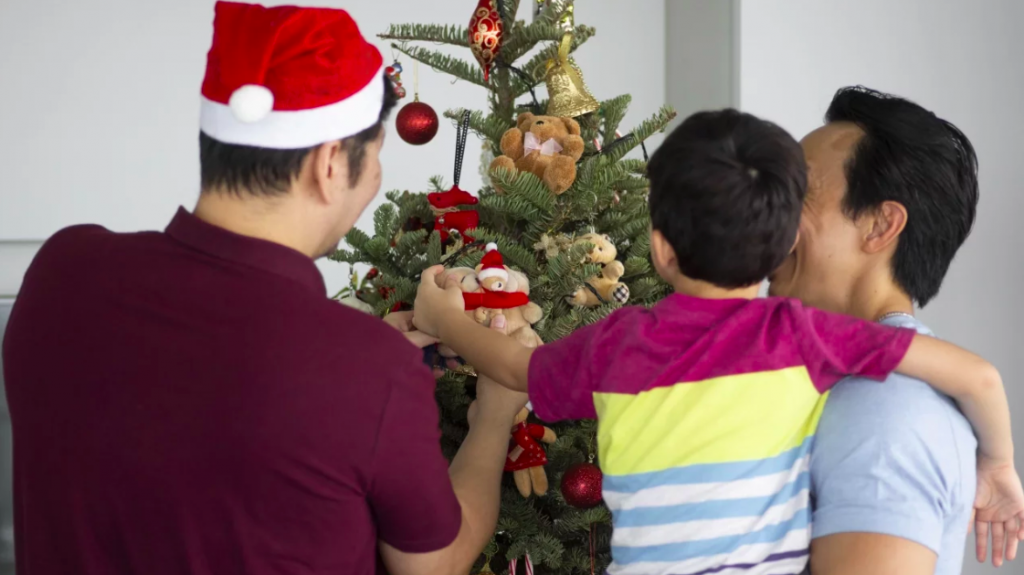
While, logically, the thought of raising a child with two mothers should be equally problematic (which it isn’t, for the record), anti-LGBT brigadiers cite an imaginary gay household as the totem for why homosexual parenthood will fail.
Coincidence? I think not.
Gay men have the right to act however they want; so do straight men. The same goes for women. Liberals may pat themselves on the back for being ‘woke’ on issues of gender and sexuality, but there are honestly some pro-LGBTQ activists (and even some gay people!) who perceive gay men who aren’t as overtly ‘feminine’ as strange and inauthentic.
This is a fallacy of forced categorisation committed by both sides of the debate, and it needs to change. There is really no either-or scenario.
You can be a gay man, and be strong, tough, deep-voiced; you can be a straight man, and be soft-spoken, feeling, and caring. Most often, as a complex, unique individual, you are all of these things. Unnecessary restrictions on ‘acceptable’ gendered behavior are plain harmful. Just ask any troubled fourteen-year-old who goes to a boy’s school.
The result of this entanglement is that female homosexuality, either in PDA or in the imagination, is misrepresented and fetishised; male homosexuality is misrepresented and alienated.
Furthermore, we are trained to reject non-masculine behaviour, and this leads to a disgust at homosexuality that is rooted not in logic, as the bottom-feeders of HardwareZone claim, but in emotion. We hate gay men not because being gay is unnatural, but because society and gender norms teach us to. When we browse the media around us, we are bombarded with the same message, and rarely see gay or lesbian relationships presented as something normal.
If we are to free ourselves of disparaging and hurtful cliches, we should shake off harmful gender stereotypes and accept the reality: that people of all orientations and genitalia display a spectrum of behaviours, and they’re no less deserving of equal respect and compassion because of it.








